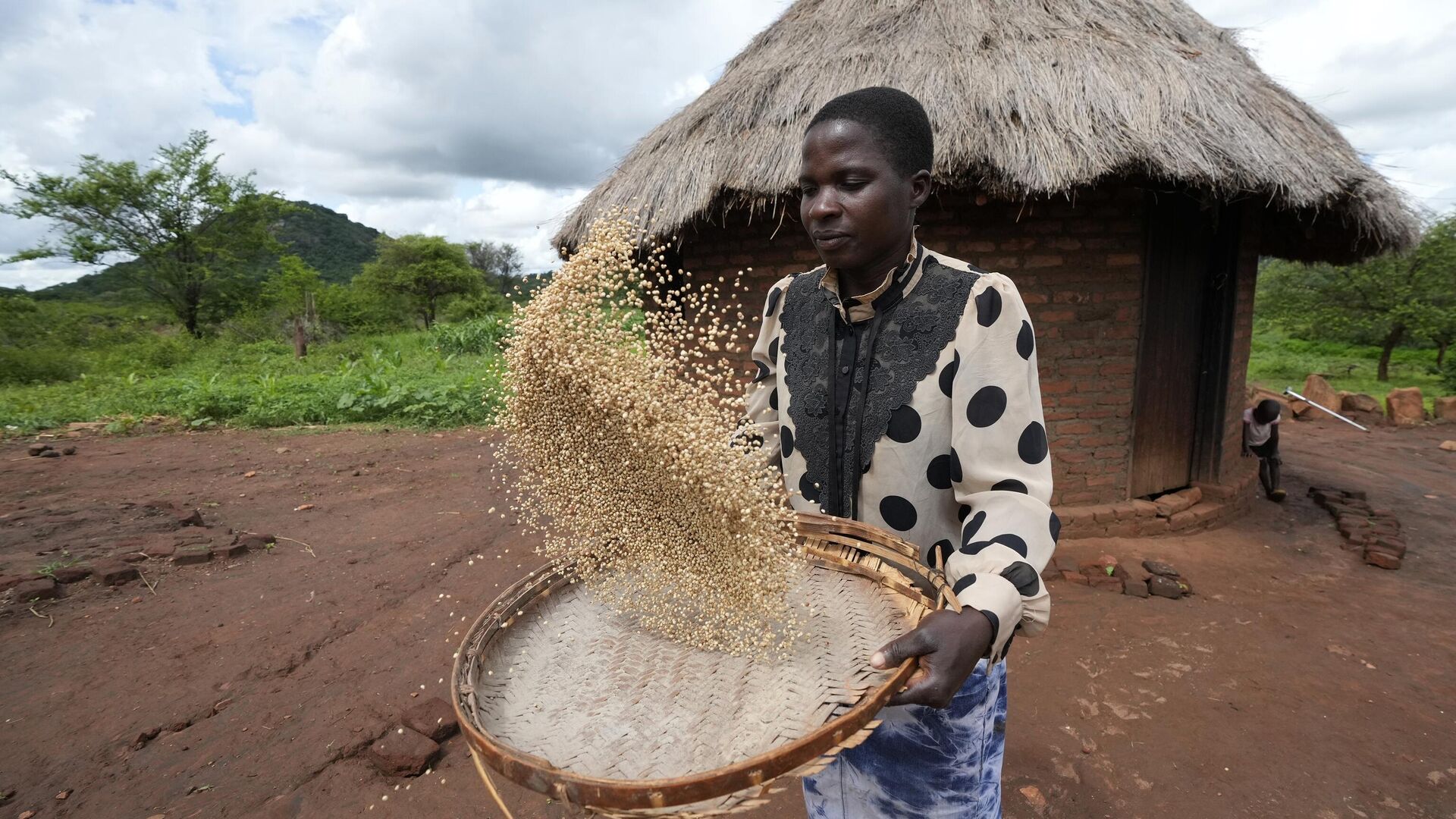https://en.sputniknews.africa/20230508/zimbabwes-improved-food-security-indicates-decline-in-hunger-rates-1059114263.html
Zimbabwe's Improved Food Security Indicates Decline in Hunger Rates
Zimbabwe's Improved Food Security Indicates Decline in Hunger Rates
Sputnik Africa
The proportion of Zimbabweans facing severe food insecurity fell from 27% in July 2020 to 9% in the period between December 2022 - January 2023, Zimbabwe National Statistics Agency (ZIMSTAT) has stated.
2023-05-08T13:28+0200
2023-05-08T13:28+0200
2023-05-08T13:28+0200
sub-saharan africa
southern africa
zimbabwe
poverty
food security
humanitarian sphere
wheat
https://cdn1.img.sputniknews.africa/img/07e7/05/08/1059114397_0:160:3072:1888_1920x0_80_0_0_acaf61dba3a74e62b55a7a907aecd01a.jpg
The proportion of Zimbabweans facing severe food insecurity fell from 27% in July 2020 to 9% in January 2023, it's National Statistics Agency (ZIMSTAT) has stated.The data comes as part of ZIMSTAT's recently published Poverty, Income, Consumption and Expenditure Survey (PICES) carried out between December 2022 and January 2023. Nine rounds of the survey were conducted between July 2020 and January 2023 among 1,800 households living in urban and rural areas across the nation. PICES telephone surveys are part of the country's poverty monitoring system.The survey likewise noted that the proportion of the rural population experiencing severe food insecurity dropped from 22 % to 10% between March 2021 and January 2023. At the same time, food insecurity in urban areas remained constant at 8%. Over half of people (54%) in rural areas live under the food poverty line, while this proportion in urban areas stands at 13%. As for April 2023, the food poverty line in Zimbabwe was ZWL25,170 (about $70) per person.Last year, Zimbabwe set its largest wheat harvest that reached 375,000 tons, making the landlocked nation self-sufficient in wheat production.President Emmerson Mnangagwa, speaking during the Dakar II Feed African summit, held this January in Senegal, declared that Zimbabwe is food secure and by next year will be exporting wheat to other countries.
southern africa
zimbabwe
Sputnik Africa
feedback@sputniknews.com
+74956456601
MIA „Rossiya Segodnya“
2023
News
en_EN
Sputnik Africa
feedback@sputniknews.com
+74956456601
MIA „Rossiya Segodnya“
Sputnik Africa
feedback@sputniknews.com
+74956456601
MIA „Rossiya Segodnya“
southern africa, zimbabwe, food insecurity, food poverty line, extreme poverty
southern africa, zimbabwe, food insecurity, food poverty line, extreme poverty
Zimbabwe's Improved Food Security Indicates Decline in Hunger Rates
The southern African nation was previously hit hard by the COVID-19 pandemic, with its economy experiencing a severe economic shock. Against this backdrop, the number of Zimbabweans living in extreme poverty reached 7.9 million, almost half of the country's population, in 2020.
The proportion of Zimbabweans facing severe food insecurity fell from 27% in July 2020 to 9% in January 2023, it's National Statistics Agency (ZIMSTAT) has stated.
The data comes as part of ZIMSTAT's recently
published Poverty, Income, Consumption and Expenditure Survey (PICES) carried out between December 2022 and January 2023. Nine rounds of the survey were conducted between July 2020 and January 2023 among 1,800 households living in urban and rural areas across the nation. PICES telephone surveys are part of the country's poverty monitoring system.
The survey likewise noted that the proportion of the rural population experiencing severe food insecurity dropped from 22 % to 10% between March 2021 and January 2023. At the same time, food insecurity in urban areas remained constant at 8%.
However, the extreme poverty rate only declined slightly, from 43% in 2021 to 42% in 2022. But it still represents a significant improvement in comparison with the figures of 2020, when the proportion of people living in extreme poverty reached 49%.
Over half of people (54%) in rural areas live under the food poverty line, while this proportion in urban areas stands at 13%. As for April 2023, the food poverty line in Zimbabwe was ZWL25,170 (about $70) per person.
Last year, Zimbabwe set its largest wheat harvest that reached 375,000 tons, making the landlocked nation self-sufficient in wheat production.
"For the first time in our country since 2004, we have never had such a bumper harvest of wheat. We are looking at high yields," the country's Information Minister Monica Mutsvangwa said, adding: "We are not yet looking at exporting but we are happy that what we are producing this year will cover more than a year of consumption."
President Emmerson Mnangagwa, speaking during the Dakar II Feed African summit, held this January in Senegal, declared that Zimbabwe is food secure and by next year will be exporting wheat to other countries.

